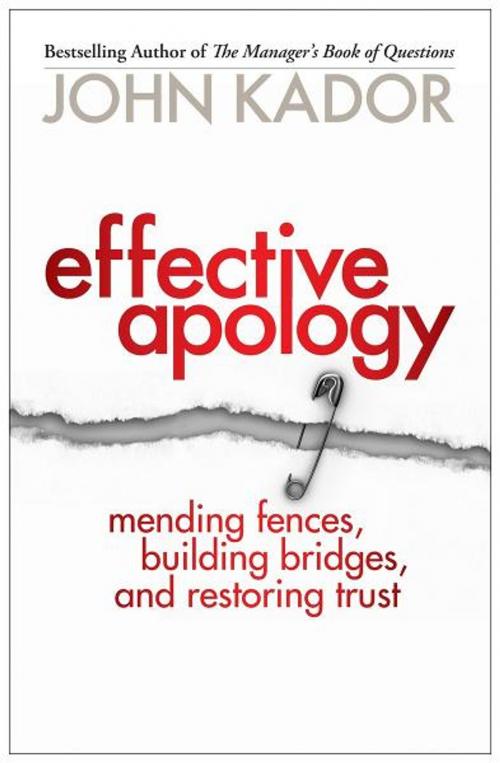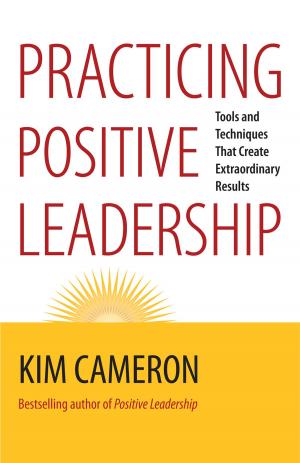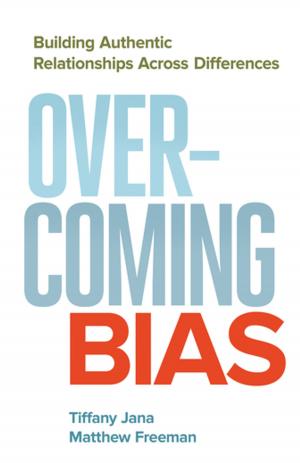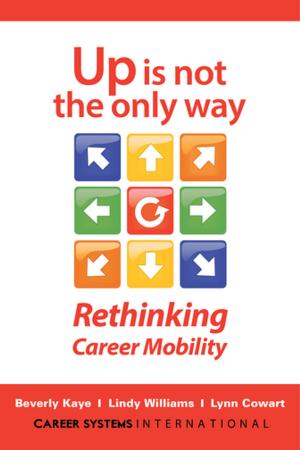Effective Apology
Mending Fences, Building Bridges, and Restoring Trust
Business & Finance, Human Resources & Personnel Management, Skills, Entrepreneurship & Small Business| Author: | John Kador | ISBN: | 9781609944575 |
| Publisher: | Berrett-Koehler Publishers | Publication: | May 11, 2009 |
| Imprint: | Berrett-Koehler Publishers | Language: | English |
| Author: | John Kador |
| ISBN: | 9781609944575 |
| Publisher: | Berrett-Koehler Publishers |
| Publication: | May 11, 2009 |
| Imprint: | Berrett-Koehler Publishers |
| Language: | English |
There’s nothing easy about apology. The news is filled with examples of leaders apologizing, needing to apologize, or failing miserably at the attempt. And certainly we all have occasion to apologize ourselves—maybe more often than we realize. But we don’t need more apologies, says John Kador—we need better ones. Too many people just go through the motions, missing out on the power of apology to restore strained relationships, create possibilities for growth, and generate better outcomes for all. Effective Apology challenges you to think about the fundamental value and importance of apology as it delivers detailed advice for making an apology that truly heals and renews. Kador explores the Five Rs of apology: Recognize the wrong and the person harmed; accept moral Responsibility for your actions; express Remorse; provide meaningful Restitution; and offer assurance that the offense will not be Repeated. Making apology work in the real world—when and how to apologize, in what medium, and how to make it stick—is made clear through over seventy examples of good and bad apologies drawn from the news, popular culture, and the experiences of Kador, his clients, and his friends. The willingness to apologize signals strength, character, and integrity. Effective leadership is impossible without effective apology. John Kador shows how to craft and deliver a confident apology that will defuse resentment, reduce litigation, create goodwill, and transform a relationship ruptured by mistrust and disappointment into something stronger and more durable than it ever was before.
There’s nothing easy about apology. The news is filled with examples of leaders apologizing, needing to apologize, or failing miserably at the attempt. And certainly we all have occasion to apologize ourselves—maybe more often than we realize. But we don’t need more apologies, says John Kador—we need better ones. Too many people just go through the motions, missing out on the power of apology to restore strained relationships, create possibilities for growth, and generate better outcomes for all. Effective Apology challenges you to think about the fundamental value and importance of apology as it delivers detailed advice for making an apology that truly heals and renews. Kador explores the Five Rs of apology: Recognize the wrong and the person harmed; accept moral Responsibility for your actions; express Remorse; provide meaningful Restitution; and offer assurance that the offense will not be Repeated. Making apology work in the real world—when and how to apologize, in what medium, and how to make it stick—is made clear through over seventy examples of good and bad apologies drawn from the news, popular culture, and the experiences of Kador, his clients, and his friends. The willingness to apologize signals strength, character, and integrity. Effective leadership is impossible without effective apology. John Kador shows how to craft and deliver a confident apology that will defuse resentment, reduce litigation, create goodwill, and transform a relationship ruptured by mistrust and disappointment into something stronger and more durable than it ever was before.















